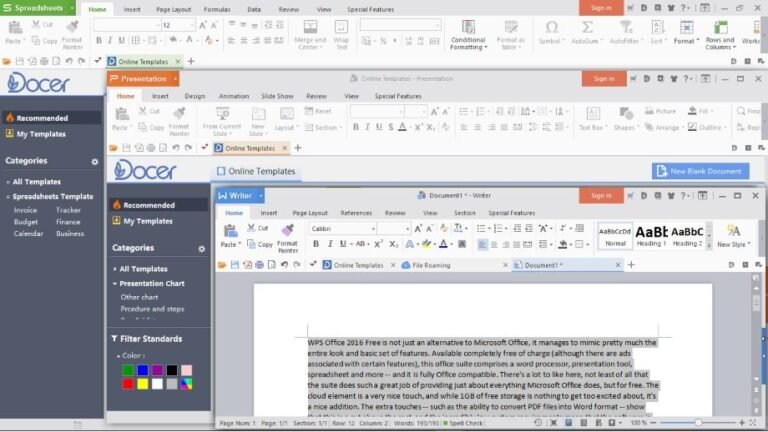
In an age where the internet has become an essential part of everyday life, ensuring digital privacy and security is more important than ever. With the rapid expansion of online services, cyber threats, and restrictive content controls, users are increasingly seeking solutions that help protect their online identity and provide unrestricted access to the web captcha bypass. One of the emerging tools that serve this purpose is the web unlocker. This article explores the role of web unlockers in enhancing digital privacy and security, explaining their functions, benefits, and impact on internet freedom captcha bypass.
Understanding Web Unlockers
What is a Web Unlocker?
A web unlocker is a tool or software designed to bypass various internet restrictions and unlock websites or online content that may be blocked or censored by governments, institutions, or network administrators. These restrictions often arise due to geographical limitations, workplace or school firewalls, or government censorship policies.
Web unlockers work by rerouting a user’s internet traffic through proxy servers, VPNs (Virtual Private Networks), or other tunneling methods. This allows users to appear as though they are accessing the internet from a different location, circumventing blocks and filters that restrict access to certain websites or content.
Types of Web Unlockers
There are several types of web unlockers available, including browser extensions, standalone applications, and online proxy services. Each of these tools offers varying degrees of privacy, security, and accessibility:
- Proxy-based web unlockers act as intermediaries between the user and the internet, hiding the user’s IP address and bypassing restrictions.
- VPN-based web unlockers encrypt internet traffic, providing a secure tunnel and masking the user’s real IP address.
- Browser extensions offer lightweight, easy-to-use solutions to quickly unlock web content within specific browsers.
The Importance of Digital Privacy and Security
Before diving deeper into how web unlockers contribute to privacy and security, it’s crucial to understand why these aspects matter so much in today’s digital landscape.
Growing Threats to Privacy
Every time users browse the internet, they leave behind digital footprints that can be tracked by advertisers, hackers, governments, and other third parties. Personal data, browsing habits, location details, and even sensitive information like passwords and financial data are vulnerable to interception.
Cybercriminals use various tactics such as phishing, data breaches, and spyware to exploit these vulnerabilities. Additionally, certain regimes implement widespread internet surveillance and censorship to control information flow and monitor citizens’ activities.
Security Challenges Online
Besides privacy, security threats like malware, ransomware, and man-in-the-middle attacks pose significant risks to users worldwide. Many public Wi-Fi networks are unsecured, making it easy for hackers to intercept data transmitted over them. Moreover, cyberattacks can target organizations’ confidential data, financial systems, and infrastructure, causing large-scale damage.
This reality necessitates tools that not only enable access to restricted content but also safeguard users’ identities and data from malicious actors.
How Web Unlockers Promote Digital Privacy
Anonymizing Online Activity
One of the primary ways web unlockers enhance privacy is by anonymizing the user’s internet traffic. When using a web unlocker, the user’s IP address—an identifier tied to their physical location—is hidden or replaced with the IP address of the proxy or VPN server. This prevents websites, advertisers, and potential trackers from profiling the user based on their location or device.
Avoiding Surveillance and Censorship
Web unlockers empower users living in countries with strict internet censorship to access information freely and safely. For example, social media platforms, news sites, or communication tools that may be banned locally can be unlocked using these tools. This ability supports freedom of speech and access to information, which are fundamental human rights.
By masking user activity, web unlockers also help evade government surveillance programs that monitor internet use to suppress dissent or control public opinion.
Protecting Data on Public Networks
Using web unlockers—especially those based on VPN technology—ensures that data transmitted over public or unsecured Wi-Fi networks is encrypted. This encryption prevents hackers from intercepting sensitive information such as login credentials, credit card numbers, or personal messages, significantly reducing the risk of identity theft or fraud.
Enhancing Security Through Web Unlockers
Encryption and Secure Connections
Web unlockers that incorporate VPN protocols encrypt all data traveling between the user’s device and the VPN server. This encryption makes it extremely difficult for cybercriminals to decode or intercept the information. It also shields users from man-in-the-middle attacks that often occur on open networks.
Mitigating Phishing and Malware Risks
Some advanced web unlockers come with built-in security features like malware scanning and phishing site detection. These protections add an extra layer of security by blocking access to malicious sites that could steal data or infect devices with harmful software.
Avoiding Bandwidth Throttling
Internet Service Providers (ISPs) sometimes deliberately slow down the speed of certain online services, a practice known as throttling. By masking the nature of internet traffic, web unlockers can prevent ISPs from identifying and throttling specific types of data, ensuring a smoother and faster browsing experience.
Practical Use Cases of Web Unlockers
Accessing Geo-Restricted Content
Many popular streaming platforms, news sites, and social media services impose geo-restrictions on their content. Users from certain countries may be unable to access these services due to licensing agreements or government policies. A web unlocker can provide access by masking the user’s location, thus promoting digital inclusivity.
Workplace and Educational Freedom
In many workplaces and schools, internet access is limited to restrict distractions or protect network security. However, sometimes these restrictions prevent legitimate research or the use of important resources. Web unlockers enable users to bypass these filters securely without compromising their privacy.
Enhancing Personal Freedom and Security
For activists, journalists, and privacy-conscious individuals, web unlockers are vital tools to maintain anonymity and communicate safely. They help avoid monitoring and allow secure access to communication platforms, aiding in the protection of whistleblowers and advocates.
Ethical Considerations and Risks
While web unlockers offer significant benefits for privacy and security, users should be aware of potential ethical and legal concerns. Circumventing restrictions set by institutions or governments can violate policies or laws, leading to penalties. Moreover, using unreliable or free web unlockers can expose users to security risks like data logging or malware infections.
It is essential to choose trustworthy web unlockers with transparent privacy policies and strong security standards to maximize protection while respecting applicable laws.
Conclusion
Web unlockers play a crucial role in promoting digital privacy and security in an increasingly restrictive and risky online environment. By anonymizing internet traffic, encrypting data, and bypassing censorship, they empower users to maintain control over their digital identities and access information freely and securely. As internet usage continues to grow globally, the demand for effective web unlockers will likely increase, highlighting their importance as tools for safeguarding online freedom, privacy, and security.




